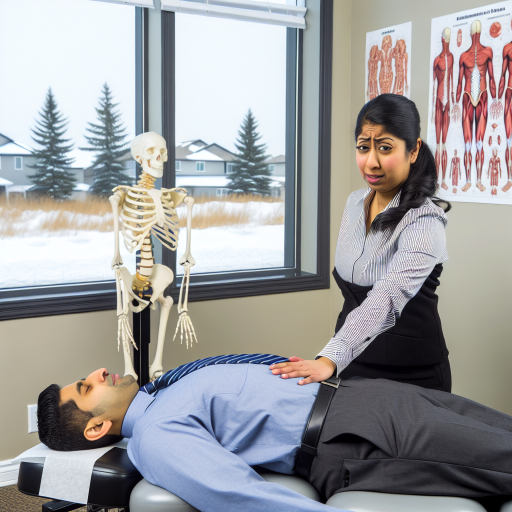Overview of Speech-Language Pathology as a Profession
Speech-language pathology is a vital field in healthcare.
This profession focuses on diagnosing and treating communication disorders.
Speech-language pathologists, or SLPs, work with various populations.
They help individuals with speech, language, and swallowing difficulties.
Importance of Communication
Effective communication is essential for daily interactions.
It affects personal relationships, education, and career opportunities.
Thus, addressing communication disorders is crucial for overall well-being.
Roles and Responsibilities
SLPs assess and develop treatment plans for their clients.
They utilize various techniques to enhance communication skills.
Additionally, they educate families about communication needs.
SLPs also advocate for individuals with communication challenges.
Work Settings
Speech-language pathologists can work in diverse environments.
Common settings include hospitals, schools, and private practices.
They may also work in rehabilitation centers and research facilities.
Each setting offers unique challenges and opportunities for SLPs.
Educational Pathways
To become an SLP, individuals must complete specific educational requirements.
A master’s degree in speech-language pathology is essential.
Candidates must also obtain certification from recognized bodies.
Continuous education and training are vital to maintain licensure.
Educational Requirements and Accreditation for Speech-Language Pathologists
Overview of Educational Pathways
Becoming a speech-language pathologist requires advanced education.
Potential candidates typically pursue a master’s degree in speech-language pathology.
These programs offer comprehensive training in communication sciences.
Students also learn about swallowing disorders and communication strategies.
Additionally, coursework may include anatomy, psychology, and linguistics.
Importantly, clinical practicum experiences are essential components of the curriculum.
Unlock Your Career Potential
Visualize a clear path to success with our tailored Career Consulting service. Personalized insights in just 1-3 days.
Get StartedAccreditation Standards
Accreditation is crucial for educational programs in this field.
The Council on Academic Accreditation in Audiology and Speech-Language Pathology oversees accreditation.
Prospective students should verify if their chosen program is accredited.
Accreditation ensures the program meets high educational standards.
An accredited degree is necessary for licensure and certification.
Licensure and Certification Requirements
Obtaining state licensure is mandatory for practicing speech-language pathologists.
Each state has specific licensure requirements that candidates must fulfill.
In addition to a master’s degree, candidates must complete a supervised clinical fellowship.
Passing the Praxis Examination in Speech-Language Pathology is often required.
Certification from the American Speech-Language-Hearing Association is also beneficial.
This certification can enhance professional credibility and job prospects.
Continuing Education and Professional Development
Speech-language pathologists must engage in continuing education.
This education helps them stay updated on best practices and new research.
Many states require ongoing education credits for license renewal.
Professional organizations often provide workshops and conferences.
These events foster networking and collaboration among practitioners.
Ultimately, lifelong learning ensures high-quality care for clients.
Licensure and Certification Processes for Practicing in Canada
Introduction to Licensure
Licensure ensures speech-language pathologists meet required professional standards.
In Canada, each province governs licensure regulations independently.
Practitioners must understand their specific provincial requirements.
Educational Requirements
A master’s degree in speech-language pathology is necessary for licensure.
Students must attend an accredited institution to meet educational standards.
Completing required clinical practicum hours is also mandatory.
Certification Overview
Certification complements provincial licensure for added professionalism.
The Speech-Language & Audiology Canada (SAC) provides certification opportunities.
Obtaining certification helps in demonstrating competencies and expertise.
Application Process
Each province offers specific guidelines for the application process.
Candidates must submit documentation of their education and clinical hours.
Additionally, references from professionals in the field are typically required.
Examination Requirements
Many provinces require candidates to pass a national examination.
The examination evaluates knowledge and clinical skills in speech-language pathology.
Prospective practitioners must prepare thoroughly for this assessment.
Maintaining Licensure and Certification
Continuing education is essential for maintaining licensure and certification.
Professionals must complete a specified number of professional development hours.
Each province provides guidelines on acceptable continuing education activities.
Additional Considerations
Networking with other professionals benefits career development.
Joining professional organizations enhances support and resources.
Understanding regulations can lead to a successful career in speech-language pathology.
Learn More: Why Chiropractic Care Is Essential For Athletes
Different Work Settings
Schools
Speech-language pathologists in schools focus on children’s communication needs.
They assess and treat students with speech or language disorders.
Additionally, they collaborate with teachers and parents to support student development.
In this setting, SLPs often provide individual or group therapy sessions.
They also create individualized education plans (IEPs) for eligible students.
Working in schools demands adaptability and strong communication skills.
Hospitals
In hospitals, speech-language pathologists work with patients of all ages.
They diagnose and manage a variety of communication and swallowing disorders.
SLPs often work as part of multidisciplinary teams in this environment.
This setting provides opportunities for inpatient and outpatient therapy.
Additionally, SLPs educate patients and families about treatment options.
Working in hospitals requires knowledge of medical terminology and procedures.
Private Practice
SLPs in private practice have the flexibility to set their own hours.
This setting allows them to work with diverse clients on various speech issues.
They can specialize in specific areas, such as child development or adult rehabilitation.
Building relationships with clients is crucial for success in private practice.
Moreover, SLPs must manage their own business operations in this role.
This setting offers increased autonomy and potentially higher earnings.
Discover More: How Kinesiologists Use Exercise to Treat Medical Conditions
Specializations within Speech-Language Pathology
Adult Care
Adult care focuses on communication disorders in individuals over 18 years old.
Speech-language pathologists help clients with various issues related to speech, language, and swallowing.
They often work with conditions such as stroke, brain injury, or neurological disorders.
Additionally, they treat voice disorders that affect adults in personal and professional settings.
Assessment includes detailed evaluations and personalized therapy plans.
Therapists regularly monitor progress to adjust treatment strategies accordingly.
Pediatric Care
Pediatric care addresses communication disorders in children and adolescents.
This area focuses on developmental language delays and speech sound disorders.
Early intervention is crucial for maximizing a child’s language potential.
Speech-language pathologists work closely with families to implement effective strategies.
They also collaborate with schools to support children’s academic success.
Therapists utilize play-based strategies to engage young clients effectively.
Comparative Specializations
While adult and pediatric care both serve communication needs, they differ significantly.
Adults may concentrate more on retraining after an injury, while children focus on developmental milestones.
Pediatric speech therapy often involves more interactive and playful methodologies.
Both specializations require a deep understanding of communication processes.
Ultimately, each pathway offers rewarding opportunities to make a meaningful impact.
Find Out More: Top Reasons To Visit A Chiropractor Regularly

Career Advancement Opportunities: Supervisory and Managerial Roles
Overview of Supervisory Roles
Supervisory roles offer speech-language pathologists a significant career advancement opportunity.
These positions involve overseeing teams and guiding practice standards.
As a supervisor, you will mentor junior staff and ensure compliance with best practices.
Furthermore, you will manage caseloads and implement treatment plans effectively.
Importance of Effective Management
Effective management is crucial in any healthcare setting.
Speech-language pathologists in managerial roles ensure operations run smoothly.
They establish policies that promote quality care and improve outcomes.
Moreover, they are responsible for budget management and resource allocation.
Transitioning to Management
Transitioning into management requires additional skills and training.
Leadership development programs can enhance these vital skills.
Networking within the field can also open doors to managerial opportunities.
Additionally, gaining experience in project management can be beneficial.
Opportunities for Advanced Specialization
Advanced specialization can lead to higher-level managerial roles.
For example, becoming a clinical supervisor enhances your qualifications.
This role often supervises specialized therapists in specific settings.
Specializations could include pediatric therapy or geriatrics, among others.
Benefits of Pursuing Management Roles
Pursuing management roles offers various benefits for speech-language pathologists.
These positions typically yield higher salaries than clinical roles.
Moreover, managers often enjoy greater job stability and benefits.
Leading a team provides an opportunity to impact the profession positively.
Path to Leadership
The path to leadership might involve seeking various certifications.
Certifications in management or leadership can distinguish candidates in job searches.
Continuing education is vital for staying updated on industry standards.
Finally, attending relevant workshops and conferences is also beneficial.
Explore Further: What to Expect During a Visit to a Podiatrist
Continuing Education and Professional Development for Speech-Language Pathologists
Importance of Continuing Education
Continuing education enhances the skills of speech-language pathologists.
This training keeps professionals updated with the latest research.
Additionally, it helps in maintaining licensure and certification.
Moreover, it opens doors for advanced career opportunities.
Types of Continuing Education Opportunities
Speech-language pathologists can explore various educational options.
These include workshops, conferences, and online courses.
In-person workshops foster hands-on learning experiences.
Meanwhile, online courses provide flexibility for busy schedules.
Certification and Specialization Programs
Obtaining additional certifications can enhance expertise.
Specialization areas include pediatric speech disorders and voice therapy.
Specialized training often leads to increased job prospects.
Certifications such as the ASHA CCC-SLP can elevate credibility.
Networking and Professional Organizations
Joining professional organizations benefits speech-language pathologists.
Organizations like ASHA offer valuable resources and networking.
Networking helps professionals share experiences and knowledge.
Additionally, it can lead to mentorship opportunities.
Staying Informed About Industry Trends
Regularly reading professional journals is essential.
Staying informed helps practitioners adapt to new methodologies.
Moreover, it assists in understanding emerging technologies.
Participating in webinars also provides insights into current best practices.
Career Advancement Strategies
Speech-language pathologists should actively seek mentorship.
Mentorship offers guidance for career progression.
Additionally, professionals can explore supervisory roles.
Taking on leadership positions can enhance their resume.
Job Market Trends and Future Prospects in Canada
Current Demand for Speech-Language Pathologists
The demand for speech-language pathologists in Canada is growing rapidly.
Many healthcare facilities face a shortage of qualified professionals.
In particular, aging populations require more speech and language services.
Moreover, schools are increasingly hiring specialists to support students.
Impact of Technology on the Job Market
Technology is reshaping the landscape of speech-language pathology.
Telepractice has opened new avenues for remote care delivery.
This innovation allows professionals to reach patients in isolated areas.
Furthermore, digital tools enhance therapy options for clients.
Emerging Specializations
Specializations are becoming essential in speech-language pathology.
Areas such as voice disorders and neurogenic communication disorders are gaining attention.
Moreover, pediatric speech therapy continues to be in high demand.
As a result, professionals can benefit from advanced training in these fields.
Employment Opportunities Across Sectors
Job opportunities exist in various sectors across Canada.
Healthcare facilities, educational institutions, and private practices are popular options.
Government agencies also offer positions for speech-language pathologists.
Each of these sectors provides unique roles that cater to different populations.
Future Growth Projections
Experts predict continued growth in employment for speech-language pathologists.
The projected increase aligns with rising awareness of communication disorders.
Furthermore, the ongoing push for accessible healthcare supports this trend.
Overall, the future remains promising for those entering the field.
Additional Resources
Speech-Language Pathology – MS | University of the Pacific
Pre-Health and Pre-Medicine Professional Path | Pepperdine …




